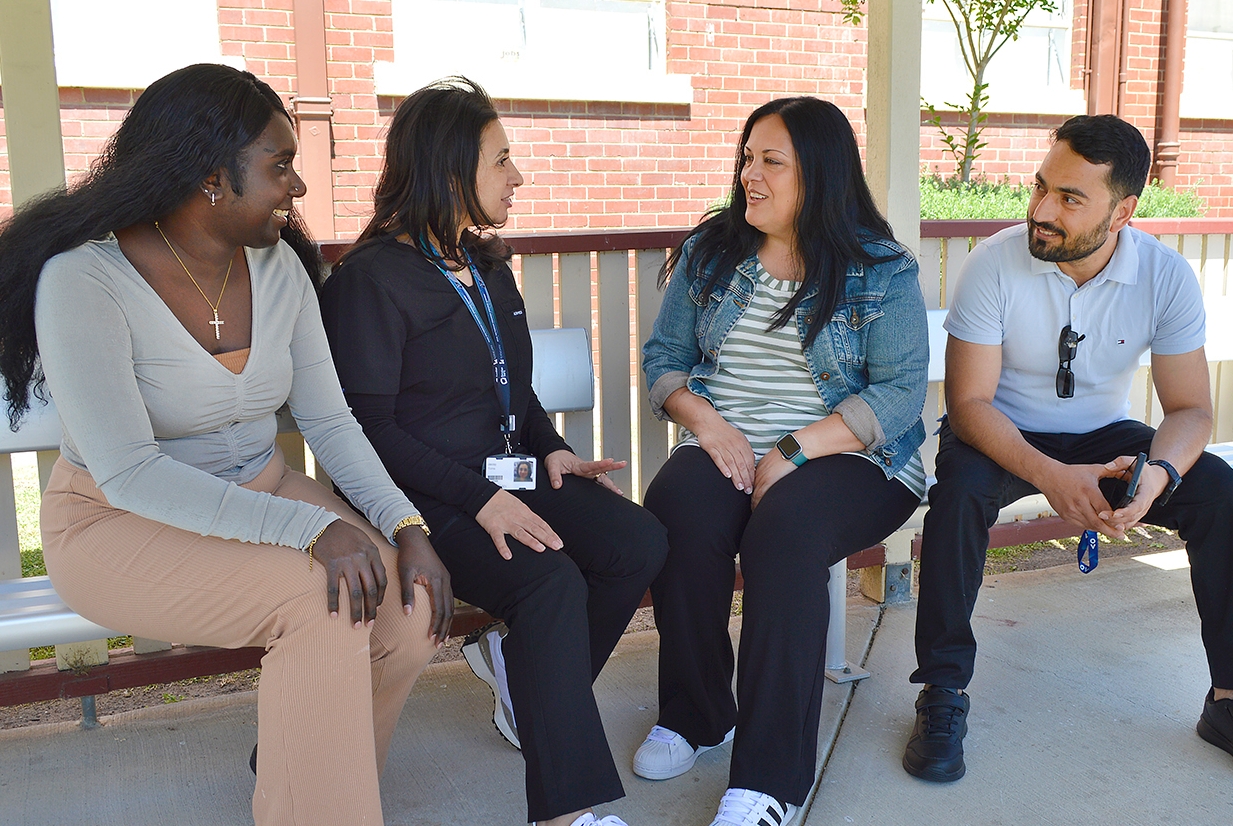So we’ve created a list of some of the most effective wellbeing activities to incorporate into your routine.
1. Listen to a podcast
Allow the nonsense to leave your mind as you delve into a podcast– it could be news, comedy, education, sports or lifestyle related. Your choice.
Turn up the volume on your headphones or speaker, and allow your podcast to take you on a journey. There’s no need to think about anything else in your life right now, just focus on your podcast. You might just find that you forget what’s happening in the world by the time you finish.
2. Read a good book
Who can say no to curling up with a good book? Grab that cup of tea and finally open the pages of that book you’ve been meaning to read for the last year.
Not only does reading allow your mind to wander and escape reality for a while, it’s also a great way to improve your English reading and writing skills and it lowers your heart rate. That’s a win-win.
3. Move your body
Exercise, Yoga, Dancing, Walking – whatever you like but get those arms and legs moving!
Research shows that as little as 30 minutes of exercise per day can boost our health and wellbeing (that includes your mind too). Other benefits for exercising include reducing stress levels, increasing productivity and leaving you happier and more relaxed. Below we’ve listed some ways that you can get active:
- Put on your favourite songs and dance away the next 30 minutes.
- Take a walk around the block to stretch out those legs and get some fresh air.
- Join in on an online workout – some companies are live streaming free workouts such as Keep It Cleaner. Check out their Facebook pages for more information.
- Feel like getting flexy? YouTube has tonnes of free yoga flows. Pick one that suits your time limit and interests you.
4. FaceTime your friends and family!
Just because we have to be apart, doesn’t mean we can’t still catch up. Schedule in a FaceTime/Skype/video call with your loved ones and see what they’re up too. Chances are they would also love a distraction from their online studies or work.
Bonus points if you schedule a FaceTime workout or activity together! Uno anyone?
5. Get creative
You can do so many things. We recommend using what you already have in the house, but if you need to visit a craft store, make sure you follow social distancing advice!
- Get your paints out and create a masterpiece.
- Scrapbook your favourite photos.
- Knit a scarf or beanie.
- Write a poem.
- Make some music.
- Plant something.
- Try out a new recipe.
6. Practice meditation
Meditations can be really helpful when you find yourself stressed or overwhelmed – you can fly solo or use a guided meditation (try YouTube or wellbeing apps such as Bloom).
Some of the benefits of meditation can include decreasing anxiety, assists with focus on the task ahead (again, we’re looking at you online study!) and can calm the mind to provide a better sleep.
When you are ready, find yourself a quiet place and sit or lie comfortably, close your eyes and begin to breathe naturally. If you’re using a guided meditation, begin to follow the voice of your guide. If you’re taking time out on your own, just begin to focus your attention on your breath, and how your body moves with each inhale/exhale. If your mind wanders, return your focus back to your breath. When your mind feels clear, slowly blink your eyes open and continue on with your day.



